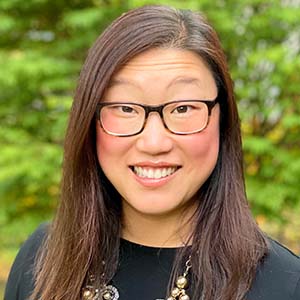
All alone in a crowd
I thought I had anticipated everything. I’d booked a beautiful Airbnb within walking distance of the conference center. I had a list of phone numbers and flight info for all my students. I’d spent hours helping my students prepare their research posters. I’d gone through the presentation list and created a schedule of interesting talks for my students to choose from. And thanks to a collaborative effort with the conference staff, the sign language interpreters were confirmed for all those sessions. We were ready.
When traveling to national meetings with my students, I typically allow one afternoon of free time so they can explore the area, take in a museum or visit whatever local venue they fancy. This time, we were going to Orlando, so the choices were endless (and expensive). But I was determined to make one thing happen — we were going to a theme park.
It would be all or nothing — we all went or none of us went. I created a poll so my students could vote on which park they’d most like to attend. The results were unanimous: Universal Studios. I worked with a friend and travel agent to book the tickets so we could get a group rate. I prepaid for the tickets and told each student I would supplement their payment so they could all afford it: “Whatever you can pay, just let me know.”
Despite a few snafus, we made it to Universal around 2:30 p.m., and we were determined to stay until the park closed. It was really hot, quite a change from the 30-degree weather we had just left in upstate New York. There were eight of us, so sometimes it was a challenge to keep track of everyone, but for the most part, we stuck together. We went on rides, took in shows, ate junk food and explored the magical Harry Potter Village. By the end of the night, my feet and my brain were equally exhausted.
All in all, the trip to the park seemed like a smashing success. But it really wasn’t, and here’s why.
Before most of the rides, two of my students had to remove their cochlear implants. The movement, the water, the chaos — for all these reasons, they didn’t want to risk damaging their $35,000 implants. I’m sure I would have made the same wise decision. However, when those students removed their implants, they were tossed into a world of silence — isolated from the group and all alone in the crowded park.
It wasn’t until the next day that one of those students bravely explained what happened. How a seemingly joyous adventure turned into a scary ordeal. Even a trip to the bathroom, separated from the rest of the group, was traumatic. I was heartbroken. How could I let this happen? What should I have done differently?
The truth is I could not have predicted this. I do not live in a world that is not made for me, so I assume everything will be fine. And it was for most of us but not those two students. I realized that I was asking the wrong question. Instead, I needed to ask, “What can I do to make sure this doesn’t happen again?”
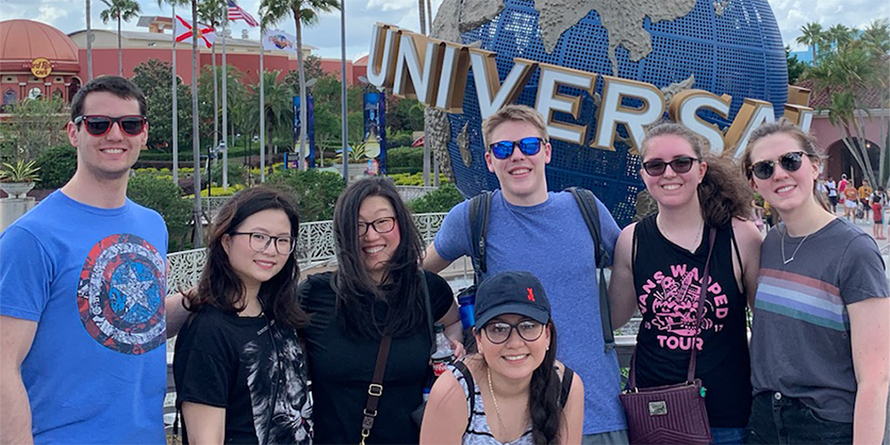
I met with some colleagues and with one of the students, and we brainstormed ways to ensure this ordeal wouldn’t be repeated. But the task was daunting. There were so many scenarios, so many things that could go wrong. The best I could do was to sit and think — going over what happened again and again.
As I thought, I realized this situation was not unique to my two deaf/hard-of-hearing students. Social activities meant to promote feelings of inclusion, to improve group dynamics, and to build a sense of camaraderie and belonging are often well intentioned but sometimes misguided. I’d been organizing social gatherings with my research group since I started at the Rochester Institute of Technology in 2009. Most were well attended and a lot of fun, but there was a pattern I hadn’t wanted to acknowledge until now — most of the time, the students who missed those events were people from nontraditional backgrounds and/or underrepresented groups.
I tried to put myself in their shoes. All were different, but they had one common thread — they were not part of the majority. Would they have fun? Would they be able to communicate with the other students? Would they understand what was going on? Would they feel out of place? Would they understand the inside jokes and the pop culture references? Would there be anyone they could relate to at the event? If any of the answers were no, I could see why those students would be hesitant to join in. So while I was thinking, “Wow, I’m hosting a fun afternoon of games and free food,” they were thinking, “I don’t feel like I belong, and this is probably going to make it worse.”
Don’t get me wrong. I don’t think we should cancel all group social events. I think they have a lot of merit. They canhelp with team building, with strengthening relationships and with enhancing a student’s sense of belonging. But because they also can do the opposite, it’s important to think really hard about our events and ask ourselves some questions before we plan them:
- How can we make the event more inclusive?
- If there’s a physical activity of some sort, does the activity disadvantage anyone in the group? If so, how can we alter the activity to ensure everyone is able to participate on an equal footing?
- Does the activity cost anything? If so, how can we lower the cost or make it free without putting students on the spot or making them feel bad about not being able to afford it?
- If the event is off campus, can everyone get there and back home easily?
- If the event is just a potluck meal, how can we encourage conversation among the group without leaving anyone out? If someone is the only member of an underrepresented group, perhaps they can bring a friend to help them feel more comfortable.
Do we have a lot we have to consider? Yes — especially for large groups, like my research group of about 20 students. Are we going to be able to accommodate every single student all the time? Maybe not, but isn’t it worth it to try? Isn’t it good to push students out of their comfort zone? Sure, but there’s a difference between outside a comfort zoneand into an impossible zone. Don’t force students to do things that make them feel physically or emotionally very uncomfortable.
So what did I learn from all this? I learned that even though I consider myself an inclusive person, I still have a lot to learn. I learned that good intentions don’t make up for bad planning. And I learned that in certain situations, people can feel very alone, even in a crowd of friendly faces.
Enjoy reading ASBMB Today?
Become a member to receive the print edition four times a year and the digital edition monthly.
Learn moreFeatured jobs
from the ASBMB career center
Get the latest from ASBMB Today
Enter your email address, and we’ll send you a weekly email with recent articles, interviews and more.
Latest in Careers
Careers highlights or most popular articles
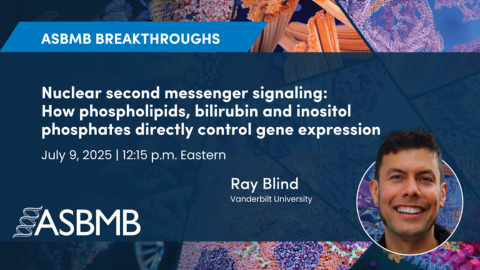
Upcoming opportunities
Friendly reminders to register for the upcoming ASBMB Breakthroughs webinar on nuclear second messenger signaling and ASBMB's in-person symposium on proteomics in Cambridge, Mass.
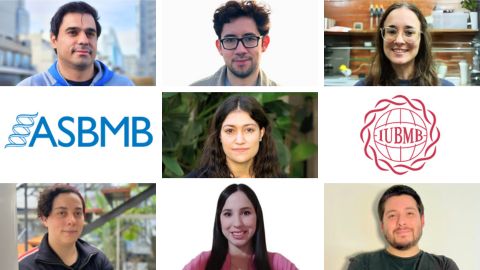
2025 PROLAB awardees announced
Seven early-career scientists receive grants to advance their research by working in North American labs.
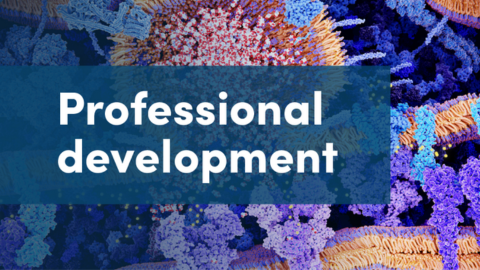
Upcoming opportunities
Register for ASBMB's upcoming free professional development webinars on women in science and commercializing biomedical research.
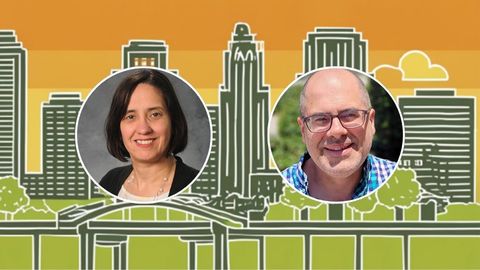
Teach, learn & transform biochemistry education
Meet the co-chairs of the 2025 ASBMB meeting on reimagining undergraduate education in the molecular life sciences to be held July 24–27, 2025 in St. Paul, Minnesota.
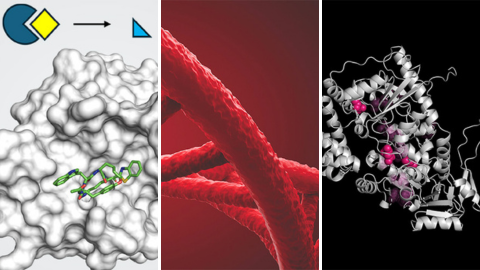
Upcoming opportunities
Submit your abstract for ASBMB's upcoming meetings on nucleophilic proteases, gene expression and O-GlcNAc.
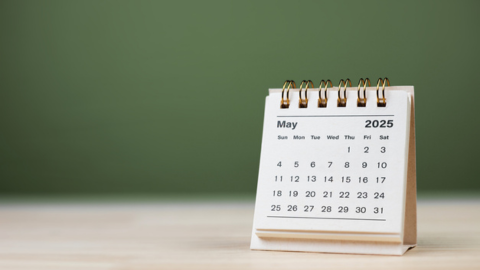
Upcoming opportunities
Friendly reminder: Submit your abstracts for upcoming ASBMB meetings! Just added: virtual events on AI and STEMM graduate education.

